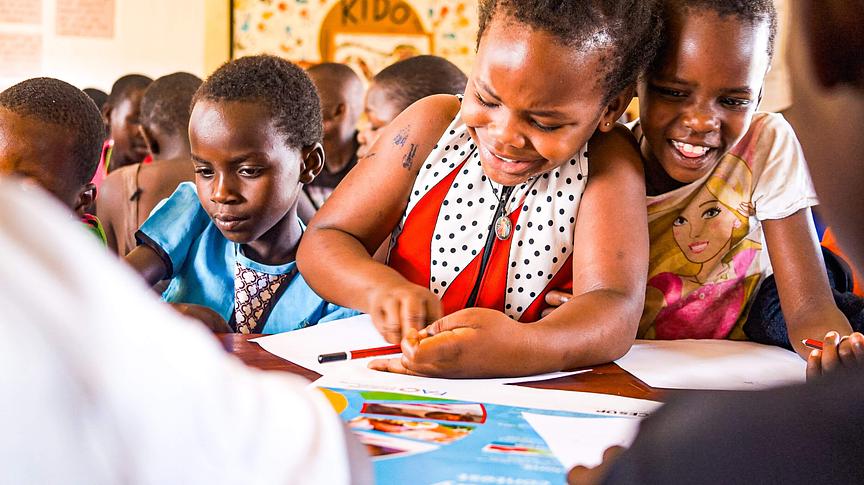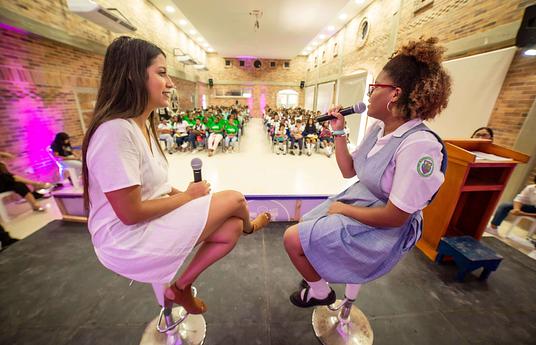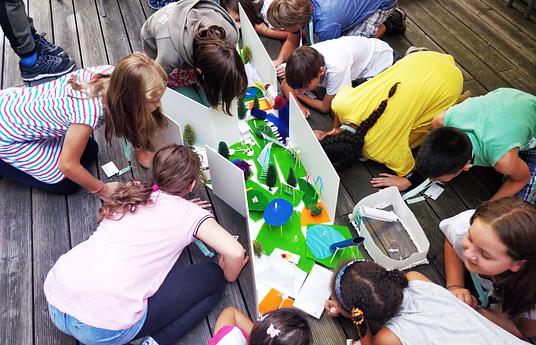Currently, children in Uganda do not all have the tools they need to flourish in the education system. They are not encouraged to think independently; express themselves creatively; work as a team; and pursue their own goals. Over-emphasis on academic excellence has led many of them to feel powerless and psychosocially challenged thus leading to poor academic outcomes.
We use art education to address psychosocial challenges children face in the education system as well as equip them with the much-needed social-emotional learning skills they need to thrive and excel. We meet young people at their ability level, both physically and social-emotionally. Our program is built around four progressive curriculum modules such as 1) general development – which enables young people to learn, stabilise, grow, to fulfill their potential. 2) creative development – focuses on problem-solving. 3) emotional development – use art to represent experiences that they perhaps cannot verbalise, to bring healing. 4) social interaction – promotes a spirit of inclusion, and breaks barriers within diverse groups. As a result, children feel safe in school and empowered to express themselves creatively, which altogether contributes to building agency, academic excellence, and expanding their life opportunities. 8 in 10 children in our program demonstrate confidence and grit.
We managed to scale our program from a single room in a slum area, to now working in 25 districts in Uganda, directly reaching over 5000 children including those with disabilities, refugees, and out of school. Because of our program, we have witnessed a 75% boost in children's confidence in the schools we work in as well as communities. We have also seen firsthand an 85% growth in the creativity of children monitored and evaluated using our observation sheet.
In the next 1-2 years, our program will have been mainstreamed and adopted as a complimentary program to the primary-level curriculum in Uganda, this is something that is already underway. We are in talks with the Ministry of Education to sign an MOU to adopt our program at the national level to scale our reach and impact.
Our approach is holistic, cost-effective, and replicable. It's designed in a way that is contextualised, and culturally responsive to meet the needs of learners from diverse backgrounds. To express your interest reach our team at admin@facesup.org for more information. We look forward to co-creating and connecting with other passionate changemakers in the education sector.



